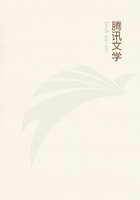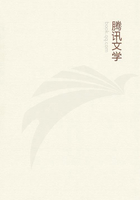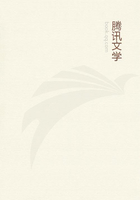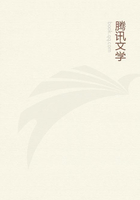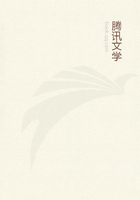It is equally a fact that these vices were imported into England by the young men who, under pretence of learning the Italian polish, travelled to Italy. From the days of Gabriel Harvey and Lord Oxford, about the middle of Elizabeth's reign, this foul tide had begun to set toward England, gaining an additional coarseness and frivolity in passing through the French Court (then an utter Gehenna) in its course hitherward; till, to judge by Marston's 'Satires,' certain members of the higher classes had, by the beginning of James's reign, learnt nearly all which the Italians had to teach them. Marston writes in a rage, it is true; foaming, stamping, and vapouring too much to escape the suspicion of exaggeration; yet he dared not have published the things which he does, had he not fair ground for some at least of his assertions. And Marston, be it remembered, was no Puritan, but a playwright, and Ben Jonson's friend.
Bishop Hall, in his 'Satires,' describes things bad enough, though not so bad as Marston does; but what is even more to the purpose, he wrote, and dedicated to James, a long dissuasive against the fashion of running abroad. Whatever may be thought of the arguments of 'Quo vadis?--a Censure of Travel,' its main drift is clear enough. Young gentlemen, by going to Italy, learnt to be fops and profligates, and probably Papists into the bargain. These assertions there is no denying. Since the days of Lord Oxford, most of the ridiculous and expensive fashions in dress had come from Italy, as well as the newest modes of sin; and the playwrights themselves make no secret of the fact. There is no need to quote instances; they are innumerable; and the most serious are not fit to be quoted, scarcely the titles of the plays in which they occur; but they justify almost every line of Bishop Hall's questions (of which some of the strongest expressions have necessarily been omitted):-'What mischief have we among us which we have not borrowed?
To begin at our skin: who knows not whence we had the variety of our vain disguises? As if we had not wit enough to be foolish unless we were taught it. These dresses, being constant in their mutability, show us our masters. What is it that we have not learned of our neighbours, save only to be proud good-cheap? whom would it not vex to see how that the other sex hath learned to make anticks and monsters of themselves? Whence come their (absurd fashions); but the one from some ill-shaped dame of France, the other from the worse-minded courtesans of Italy? Whence else learned they to daub these mud-walls with apothecaries' mortar; and those high washes, which are so cunningly licked on that the wet napkin of Phryne should he deceived? Whence the frizzled and powdered bushes of their borrowed hair? As if they were ashamed of the head of God's making, and proud of the tire-woman's. Where learned we that devilish art and practice of duel, wherein men seek honour in blood, and are taught the ambition of being glorious butchers of men? Where had we that luxurious delicacy in our feasts, in which the nose is no less pleased than the palate, and the eye no less than either? wherein the piles of dishes make barricadoes against the appetite, and with a pleasing encumbrance trouble a hungry guest. Where those forms of ceremonious quaffing, in which men have learned to make gods of others and beasts of themselves, and lose their reason while they pretend to do reason? Where the lawlessness (miscalled freedom) of a wild tongue, that runs, with reins on the neck, through the bedchambers of princes, their closets, their council tables, and spares not the very cabinet of their breasts, much less can be barred out of the most retired secrecy of inferior greatness? Where the change of noble attendance and hospitality into four wheels and some few butterflies? Where the art of dishonesty in practical Machiavelism, in false equivocations? Where the slight account of that filthiness which is but condemned as venial, and tolerated as not unnecessary? Where the skill of civil and honourable hypocrisy in those formal compliments which do neither expect belief from others nor carry any from ourselves? Where' (and here Bishop Hall begins to speak concerning things on which we must be silent, as of matters notorious and undeniable.) 'Where that close Atheism, which secretly laughs God in the face, and thinks it weakness to believe, wisdom to profess any religion? Where the bloody and tragical science of king-killing, the new divinity of disobedience and rebellion? with too many other evils, wherewith foreign conversation hath endangered the infection of our peace?'--Bishop Hall's 'Quo Vadis, or a Censure of Travel,' vol xii. sect. 22.



